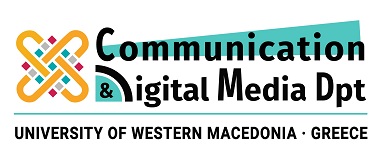CDM 1165 MANAGEMENT OF ORGANIZATIONS
LEVEL OF STUDY: UNDERGRADUATE
COURSE UNIT CODE: CDM 1165
SEMESTER: 1st
COURSE TITLE: MANAGEMENT OF ORGANIZATIONS
TEACHING WEEKLY HOURS: 3 H/W LECTURES
ECTS: 5
COURSE TYPE: CORE COMPULSORY
TEACHING AND EXAM LANGUAGE: GREEK
COURSE DELIVERY TO ERASMUS STUDENTS: YES (in English)
This module introduces students to the field of Organisational Management so that they get to know and understand basic concepts, principles, and theories of management, as well as their practical applications in varied organisational contexts. The module aims to help students realise the importance of management in shaping healthy organisations that operate effectively and sustainably (for everyone) in the complex environments of human society. Given that the concept of «organisation» includes a wide range of entities, the module will analyse various organisational forms, such as (small and large) companies of primary production, processing or trade companies, service companies, public organisations, associations, unions, non-profit organisations, institutes, Local Government Organisations, as well as organisations traditionally providing humanistic (people-centred) work, such as hospitals, schools, and nursing homes.
All organisations constitute open social systems in which people have a central place. They are basically made up of people who work together to create and offer some good. A basic assumption of this module is that the management of an organisation should seek to help people (co)work harmoniously, creatively, and with a high sense of responsibility towards the society they are called to serve. A basic principle for the effective (co)operation of those who participate in an organisation is to treat them in human terms. That is why emphasis is given to the ethical dimension of organisational activity, as far as the employee (producer of goods), the consumer (recipient of goods), and the environment, in general, are concerned.
Upon successful completion of this module, students will be able to:
- Recognise different types of organisations and their distinctive characteristics.
- Identify the basic functions of management (planning, organising, staffing, leading and controlling).
- Identify core business functions, such as purchasing, production, sales and marketing, accounting and finance, human resources management, and distribution).
- Understand basic management theories in their historical context (from classical to modern theories).
- Analyse the internal and the external environment of an organisation as an open social system.
- Sketch the general structure and departmentalisation of varied organisations.
- Understand the concept of culture and its close relation to organisational structure.
- Realise the importance of culture as an exceptional - and difficult to “copy” - competitive advantage.
- Appreciate the role of leadership in promoting the well-being and sustainabilty of organisations.
- Realise the existence of different leadership approaches (styles) and their link to different employee motivation and control strategies, as well as different organisational outcomes.
- Develop their own strategic and functional plans.
- Work in groups to make decisions and develop solutions to specific business problems through the critical analysis of case studies.
- Recognise the importance of corporate social responsibility and act morally in order to serve society and the public good.
- Identify the varied sources of power in organisations and critically analyse the micropolitical activity that takes place in non-democratic environments.
- Identify the causes of conflict in organisations and apply appropriate strategies for managing it.
- Think independently in order to develop their own (personal) philosophy of management.
